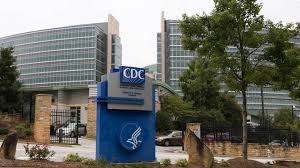Independent Public Health Agency Proposed
|
06/10/2021 |
|
In an incisive article in the New England Journal of Medicine, (NEJM)* legal scholars affiliated with the Harvard Law School and the Boston University School of Law proposed the establishment of an independent agency to coordinate all aspects of public health including planning responses to disease outbreaks, acquisition and management of resources and communication.
|

CDC Campus |
The article cites what in retrospect, appear to be politically inspired decisions that may have exacerbated the impact of COVID during 2020. The authors maintain that interference in the tenure of senior officials in agencies including the Biomedical Advanced Research and Development Authority, the Food and Drug Administration and the Centers for Disease Control and Prevention. Disruption could have been prevented had there been a strong independent agency operating with a charter similar to the Federal Reserve, independent of political pressure. The authors maintain that the Federal Reserve was able to resist political pressure during the past four years since it was structured and chartered as an independent agency.
|
|
In the article the authors attribute the high incidence rate and fatalities associated with COVID to defects in the structure of core public health institutions that were subject to political interference and lack of coordination. Despite the accusatorial tone of the NEJM article, it must be recognized that the previous Administration embarked on Operation Warp Speed that resulted in three vaccines that received emergency use authorization at the end of 2010. This made possible mass vaccination during the first four months of 2021 under the present Administration. The successful immunization of approximately 150 million U.S. residents by June 2021 was only possible due to the foresight, Federal investment and activities of scientists in existing government agencies including the NIH, cooperating with their counterparts in industry.
|
|
The authors emphasized that leaders of independent agencies including the proposed public health entity should be immune from removal on political grounds. Generally independent agencies have five commissioners but in the case of the Public Health Agency nominees should possess appropriate qualifications and experience and be subject to Senate confirmation. It is however recognized that agencies can be hamstrung by deliberate failure by an administration to appoint commissioners thereby depriving the entity of a quorum or alternatively the agency can be “eviscerated” by eliminating or severely restricting the budget.
The authors of the article cite legal experts who maintain that the Constitution foresaw the creation of long-standing stable institutions serving public interest beyond politics. Although a legal case can be made to establish an independent public health agency, is believed that this would be exceptionally counterproductive. Currently the principal entities involved in public health include the Department of Health and Human Resources and their subsidiary agencies the NIH and CDC, the Department of Defense and the Department of Homeland Security. The article did not take into account the resources of states that operate in conjunction with federal agencies or academia and industry that have established relationships that would be seriously impacted if not destroyed by creating a new unified and independent health agency.
|
|
Our best action going forward is to encourage collaboration among existing agencies, develop a greater degree of bipartisan cooperation in Congress, especially with respect to public health. We should rely on the electoral process to ensure a rational Administration working for the benefit of its citizens as a co-equal branch with the Judiciary and Legislature.
*Salwa,T. and Robertson, C. (2021) Designing an Independent Public Health Agency. NEJM 384:1684-1687
|

NIH Campus |

|
|
|